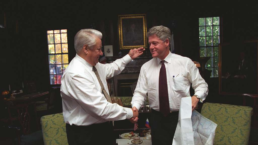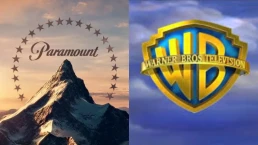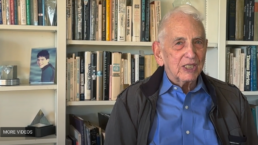Clinton officials understood Moscow’s objection to eastward expansion.
By Blaise Malley, Responsible Statecraft
This week at the NATO summit in Washington, alliance leaders are expected to sign a joint communique that declares that Ukraine is on an “irreversible” path to joining the alliance.
This decision is likely to be celebrated as a big step forward and a reflection of Western unity behind Ukraine, but a series of newly declassified documents show that the U.S. has known all along that NATO expansion over the last 30 years has posed a threat to Russia, and may have been a critical plank in Moscow’s aggressive policies over that time, culminating in the invasion of Ukraine in 2022.

“The documents show that the Clinton administration’s policy in the 1990s emphasizing two tracks of both NATO enlargement and Russian engagement often collided, leaving lasting scars on [then Russian President Boris] Yeltsin, who constantly sought what he called partnership with the U.S,” according to the National Security Archive, which wrote about the newly declassified documents this week. “But as early as fall 1994, according to the documents, the Partnership for Peace alternative security structure for Europe, which included both Russia and Ukraine, was de-emphasized by U.S. policymakers, who only delayed NATO enlargement until both Clinton and Yeltsin could get through their re-elections in 1996.”
In 1995, then-national security adviser Anthony Lake warned President Bill Clinton that Russian leadership would not accept the expansion of the alliance to the East.
Recent Posts
As Security Council Stalls, There Are Other Ways to Stop U.S.-Israeli War on Iran
March 3, 2026
Take Action Now A “Uniting for Peace” resolution in the UN General Assembly can counter the Security Council’s failure to act.By Marjorie Cohn,…
States Can Block the Paramount-Warner Deal
March 3, 2026
Take Action Now But thanks to some clever maneuvering, they are already running out of time.By David Dayen, The American Prospect What started as…
Congress, Do Your Job and End This Illegal War of Aggression By The U.S. and Israel
March 2, 2026
Take Action Now Congress must assert its Constitutional authority over matters of war and peace against an out-of-control, rogue president and…
Daniel Ellsberg Speaks to Us as the War on Iran Continues
March 2, 2026
Take Action Now Ellsberg’s voice is back via a compelling new book. “Truth and Consequence,” being published this week, provides readers with his…




